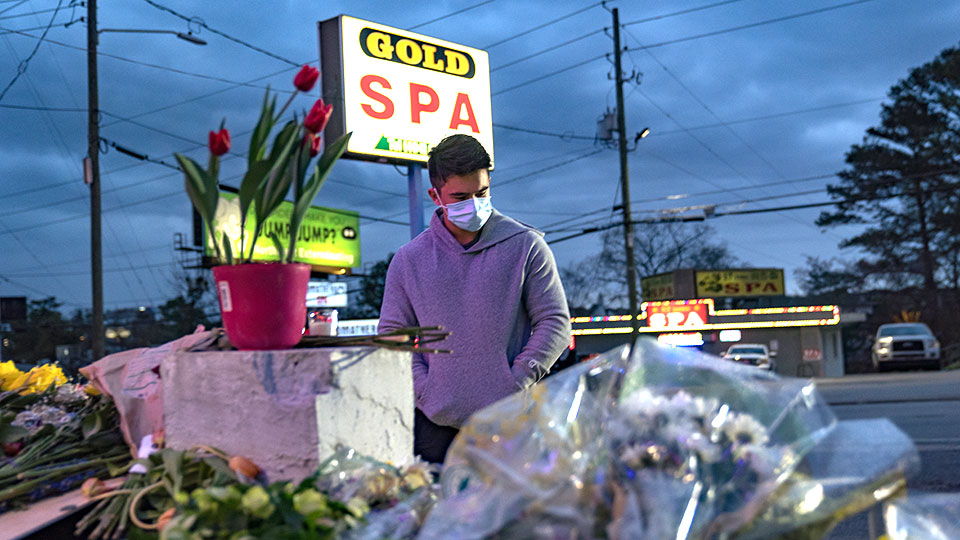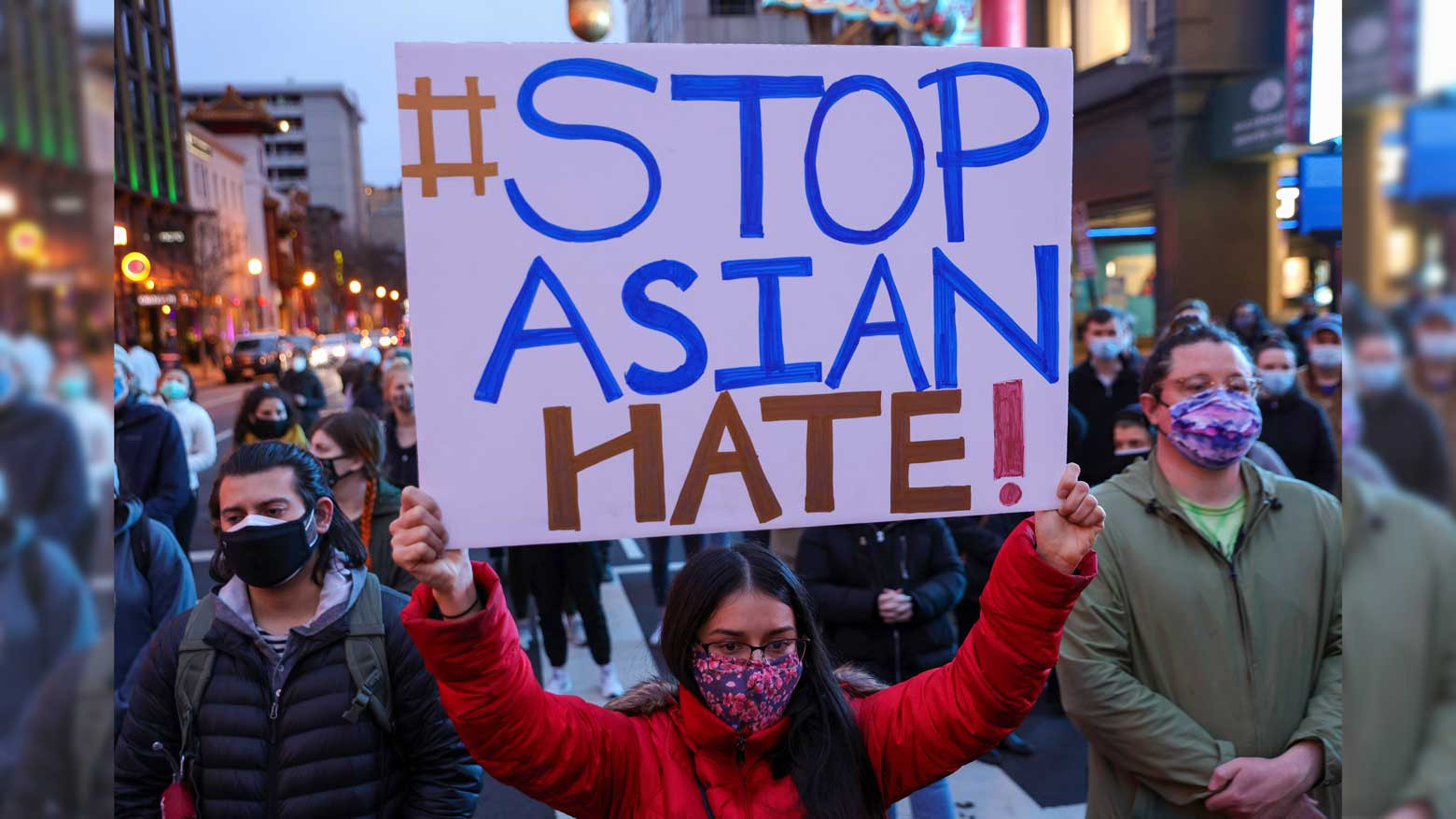Of the eight people killed, six were Asian women. Law enforcement officials were quick to downplay the racial angle, claiming the suspect was motivated by a sex addiction, and simply had a “bad day”. But activists and some lawmakers insist it’s impossible to remove the shooting from the broader context.
According to the NGO Stop AAPI Hate, whose acronym stands for Asian-Americans and Pacific Islanders, 3,800 anti-Asian hate incidents have been reported in the past year. They include violent crimes, racist comments and other non-criminal acts. Around 11% involved a physical assault. The majority targeted women.

Manjusha Kulkarni, the co-founder of Stop AAPI Hate, says the perpetrators often directly quoted former President Donald Trump. Experts say his racist rhetoric about the coronavirus has fueled the rise in hate crimes.
“We know terms like Wuhan virus, China virus and Kung-flu resulted in a number of individuals being attacked, verbally harassed or otherwise physically attacked with language like that being used,” Kulkarni says. “In fact, in the fall of 2020, we released a report showing that over 500 of the incidents utilize that language, that racist sentiment from the president.”
Professor Brian Levin, the director of the Center for the Study of Hate and Extremism at California State University, San Bernardino, points to the same influence. “Words from leaders matter. When President Trump and even other political leaders make derogatory statements or connect stereotypes to certain racial and ethnic groups, we saw an increase” in hate incidents, he says.
Trump is not the only political leader in the US to use hateful language. Even in the aftermath of the Atlanta tragedy, some continue to stoke the fire. During a Congressional hearing on anti-Asian hate crimes held just two days later, Texas Congressman Chip Roy advocated lynching undocumented immigrants and Black Lives Matter activists. He also called the coronavirus “the China virus” and described the hearing as an attack on free speech.
His comments drew a swift rebuke from Asian American members of Congress, including California Congressman Ted Lieu, who addressed Roy directly: “You can say racist stupid stuff if you want, but I'm asking you to please stop using racist terms like kung flu or Wuhan virus, or other ethnic identifiers in describing this virus. I am not a virus."
The degree of anti-Asian sentiment among law enforcement officials is also concerning. Thousands of officers across the country, at both state and federal level, have been documented using racist and hateful language on social media. Some even moonlight as members of hate groups. Dozens took part in the Capitol riot in January.
The spokesman for the Atlanta-area Cherokee County Sheriff’s department, who drew outrage for saying the massage parlor shooter simply had a “bad day,” was removed from the case after it was discovered he had put racist T-shirts up for sale on his Facebook page.
Victims are organizing and pushing back. Nasu Noriko, a Japan-born teacher in Seattle, suffered facial fractures and lost teeth when she was hit in the face with a rock in the Chinatown district in February. Nasu attended a protest in the city against anti-Asian hate shortly after the incident, and plans to continue her activism.
“I need to show an example for my students,” she explains. “A lot of people share their stories with me and they don't have a voice, so I decided I need to be the voice as much as I can.”
Protests against anti-Asian violence have taken place across the US, including an event in Los Angeles’ Little Tokyo that attracted 1,000 people. Among them was Ito Noriaki, the head priest at Higashi Honganji Buddhist Temple in downtown Los Angeles. When the temple was vandalized in an apparent hate crime earlier this year, he reached out and strengthened ties with other faiths.
“I've been talking to Catholics, to Protestants, to people in the Islam community, and just trying to bridge friendships, and also cooperation,” says Ito. “As negative an incident as this was, it has the power to make positive changes and to build bridges between us and the rest of our community.”

